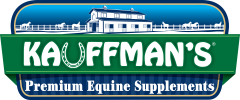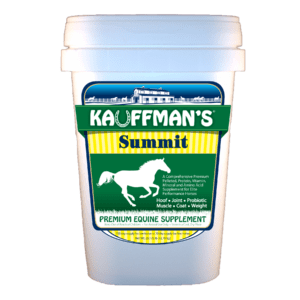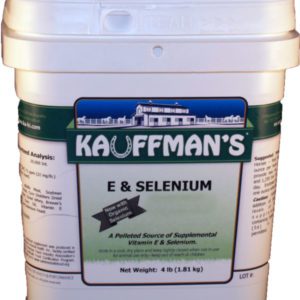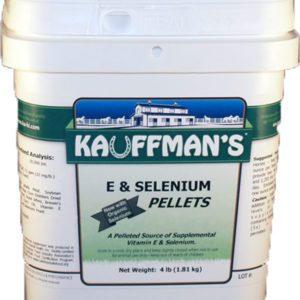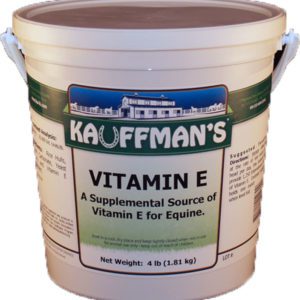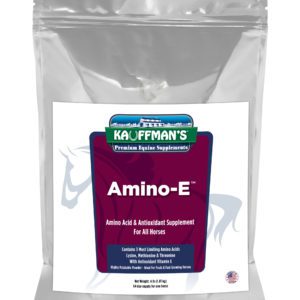Common Horse Muscle Issues
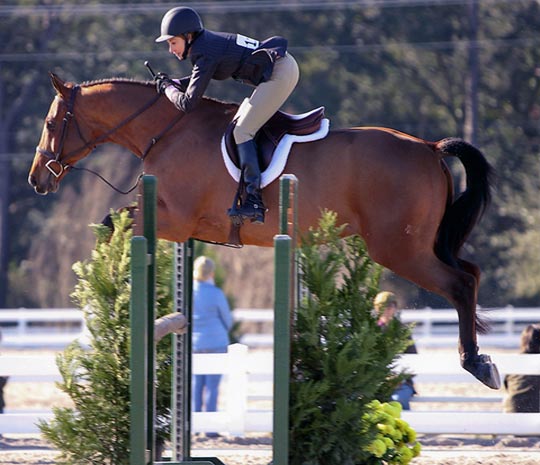
Myopathic horse muscle problems are congenital, injury-based or due to nutritional imbalances. Muscle inflammation caused by parasitic disease, certain autoimmune conditions or pathogenic infections can also initiate horse muscle disorders. Unless addressed as soon as possible, equine muscle problems may lead to muscle degeneration and increasingly poor health.
Nutritional Deficiencies
If horses do not receive enough vitamin E or selenium in their diet, they may suffer progressive muscle degeneration — specifically of the heart and skeletal muscles — associated with difficulty swallowing, trouble walking and rapid heartbeat. Blood tests can confirm if a vitamin E and/or selenium deficiency exists.
Forage is the primary source of vitamin E. However, content of vitamin E in forage declines if the forage is stored too long. In addition, harvested older forages have less vitamin E than younger forage plants.
Horse Muscle Supplements:
-
 KAUFFMAN’S® Summit$84.40 – $576.25
KAUFFMAN’S® Summit$84.40 – $576.25 -
 Vitamin E & Selenium Powder$28.95 – $135.25
Vitamin E & Selenium Powder$28.95 – $135.25 -
 Vitamin E & Selenium Pellets$38.10 – $151.30
Vitamin E & Selenium Pellets$38.10 – $151.30 -
 Vitamin E 20K$27.89 – $114.15
Vitamin E 20K$27.89 – $114.15 -
 KAUFFMAN’S® Amino-E$107.55 – $311.00
KAUFFMAN’S® Amino-E$107.55 – $311.00
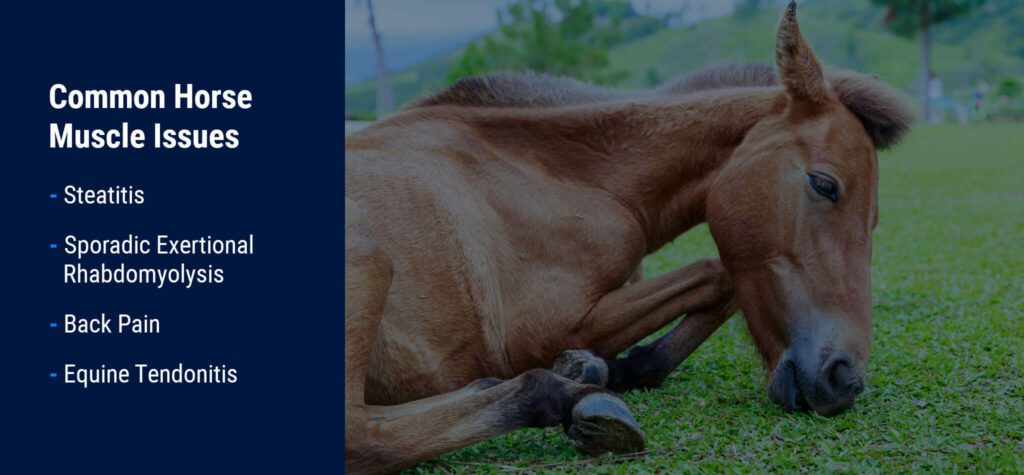
Steatitis
Steatitis (yellow fat disease) is fatty tissue inflammation occurring in foals with vitamin E deficiencies. Signs of steatitis include muscle degeneration and a yellowish tinge to fatty tissue.
Sporadic Exertional Rhabdomyolysis
Horses suffering calcium, sodium or vitamin E deficiencies may experience muscle stiffness and cramping after exercising. The horse’s blood may also show elevated levels of enzymes associated with muscle activity. Treatment includes correcting dietary deficiencies and metabolic imbalances.
Back Pain
Horses with sore back muscles may shy away from contact while being groomed, pin their ears during saddling, buck when mounted or constantly rearrange stall bedding. Back pain in horses may also cause the horse to fidget, tense up unnecessarily and react less responsively to owner commands. Trail horses often hurry up and down hills in an effort to evade back pain or may even run down hills sideways.
Equine Tendonitis
Since a horse’s tendons are not very flexible, they are vulnerable to injury if too much force is placed on them. Ligaments and tendons suffering inflammation heal slowly because they do not receive a rich supply of blood. Consequently, equine tendonitis requires professional rehabilitation therapy to avoid damaged tendons from healing imperfectly. Incorporating horse muscle supplements into the diet of a horse suffering tendonitis also promotes healing of tendons and ligaments while strengthening surrounding joints and muscles.
Amino-E Horse Muscle Builder Supplement
In addition to vitamin and mineral supplements for horses with muscle issues, Kauffman’s Animal Health also offers Amino-E, a dietary supplement containing several amino acids conducive to muscle health and strength.
While some horse muscle disorders may need veterinary treatment, muscle issues caused by dietary deficiencies can be effectively addressed by our all-natural horse muscle supplements. Call us today at 1-800-992-3147 to place an order with one of our representatives.
